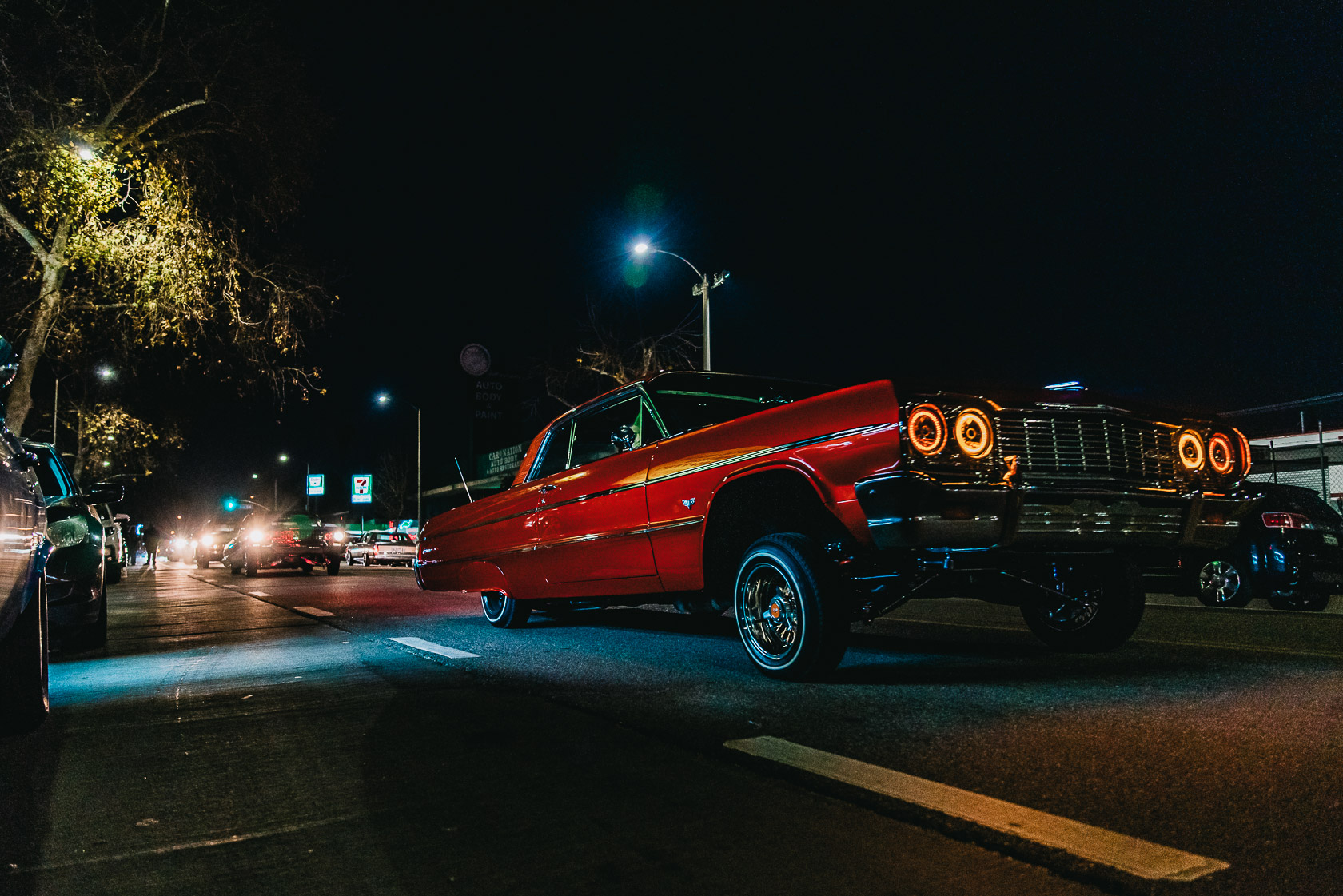The new year came a cavalcade of polished chrome through East Los Angeles.
A crush of L.A. car clubs celebrated with a New Year's Day cruise along Whittier Boulevard yesterday, in which over 200 lowriders rallied over the reversal of anti-cruising laws enacted on the first day of 2024.
NBC reports that those long-signaling "No Cruising" signs are being taken down from their posts in light of last October's passage of CA Assembly Bill 436, making it no longer a crime to pass the same spot within a six-hour period. The signs stem from a 25-year-old law designed to tamp down on nocturnal celebrations on the street and at neighborhood chill shops, as well as California's infamous car culture and the gathering of young lowrider and classic car enthusiasts of color.
The law also removes restrictions on vehicle owners modifying their cars to a specific lower height.
Anti-cruising laws were established in 1988, leaving it up to local jurisdictions to decide whether or not "cruising" could be cited as a traffic offense. Notoriously anti-fun local legislators in numerous cities and neighborhoods—many hyped up about the era's rising crime and murder rates—followed suit, putting an end to cruising on iconic stretches such as Whittier Boulevard, Crenshaw Boulevard, and Ventura Boulevard.
The new law, authored by State Assemblymember David Alvarez (D-San Diego) and signed by Governor Gavin Newsom, effectively prohibits local and city governments from passing anti-cruising ordinances. The law's reversal has many celebrating, not just for the ability to freely maneuver dropped and/or chopped Chevys lowly and slowly through the streets, but for undoing what many believe to be a racially discriminatory law targeting Latinos.
"This is the big day because, midnight—New Year’s 2024, midnight—we were able to take that law and throw it in the trash, and when they took those signs down, it brought down all that discrimination,” one lowrider at the New Year's Day event told NBC.
Another new state law that took effect yesterday and could affect California drivers includes a new one that allows six cities to establish speed camera pilot programs for five years. Los Angeles, San Francisco, San Jose, Oakland, Glendale, and Long Beach will issue warnings for the first 60 days before drivers get fined $50 for going a minimum of 11 miles over the speed limit, though one's income could see that fine reduced.
A new law passed in 2022 also took effect yesterday that requires police officers to tell people why they've been pulled over first instead of offering the usual, "Do you know why I've pulled you over?" speech. The cessation of "pre-textual stops" is intended to end a practice that can often result in self-incrimination or more serious charges, while having been shown by a Stanford study across 20 states to unfairly target Black drivers at a greater rate and generally cause greater fear, anxiety, and panic in the midst of a traffic stop.







